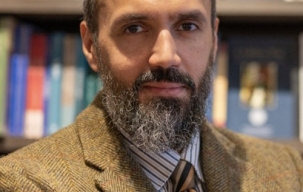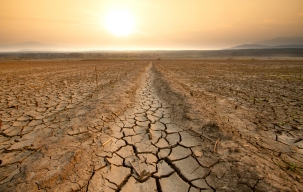Iraq
Though close in proximity, Iraq differs from the other Gulf states. The country today known as Iraq, created in 1932, tells a fraction of the story of the region at the centre of the Middle East, that has been central to both its civilization and conflicts.
Iraq’s nodal geographical location makes it a vital nation in the Middle East, bordering the key regional players of Saudi Arabia, Syria, Turkey and Iran. It is virtually landlocked apart from a 58 kilometer of coast in the northern Arabian Gulf. In its recent history Iraq has played host to a number of foreign interests, yet it boasts arguably some of the oldest and most significant history and civilization in the world.
Often referred to as one of the cradles of civilization, the fertile region between the rivers of the Tigris and Euphrates that run south through Iraq has been and still continues to be the strategic and cultural heart of the region. The area has been home to successive civilisations since the 6th millennium BC, including the titanic empires of the Babylonian, Sassanid and Abbasids. The region has been the site of a vast number of empires, tribes and religions, as much as it has outsourced innovations and experts in poetry, architecture, painting and writing. The city of Baghdad, having been at the center of the commercial and intellectual world, now plays an important strategic role in the region, as a centre of security and administrative control.
Iraq’s diverse ethnic makeup, as well as its geography, tells the story of both its successes and conflicts. The creation of the Kingdom in 1938 grouped ethnicities including Arabs, Kurds, Turkmens and Yazidis under the same flag. As such, certain leaders and groups have exploited such ethnic divides to engage in sectarian violence that has marred the country's growth in recent decades. Atrocities against ethnic groups, especially the Kurds, have been carried out by both Saddam Hussein and ISIS. The concentration of Kurds in the mountainous northern region of Kurdistan had been an ongoing source of conflict for decades, in which Kurds long fought for independence from Iraq. Following the fall of Saddam Hussein's regime, a semi-autonomous Kurdistan region was established in Northern Iraq.
The Kurdistan Region of Iraq (KRI)
The Kurdish people and their identity has long been defined and born out of oppression and resistance. Once assumed to received full independence via the Treaty of Sevres, the Kurds have experienced a history of betrayal, oppression, and genocide.
Genocidal events such as the Anfal campaign, in which Saddam Hussein’s forces killed between 50,000 and 182,000 Kurds in the 1980s, have become an important constitutive element of Kurdish national identity. The Kurdish people, with a population estimated at over 30 million and a large and active diaspora, are the largest ethnic group in the world without a state. They are spread out geographically across the region between Turkey, Iraq, Iran, Syria and Armenia. The fate of their region and its autonomy is largely influenced by its regional neighbours.
The geography and ethnic makeup of Iraq has meant it is susceptible to instability and violence, particularly from foreign actors and terrorist groups such as Iran or ISIS. Iraq is currently experiencing relative calm as it recovers from decades of unrest and war, from the 2003 Invasion to the growth in territory of ISIS. The diminishing presence of foreign troops in the region as well as scheduled democratic elections in October 2021 signal renewed hope for the region in returning to a state of stability and prosperity. As Iraq rebuilds, the UK has an opportunity to redefine its relationship with the nation and region at large, becoming an economic partner as well as a strategic ally.
 Members content
Members content Members content
Members content
